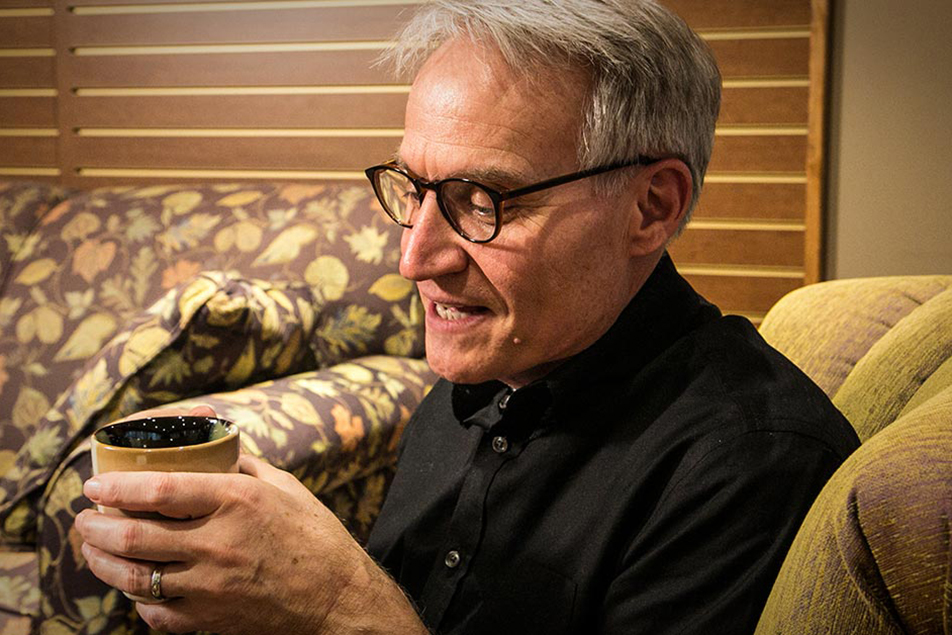
For a good deal of Americans, the thought of a traditional sit down meal has morphed into little more than a fleeting notion. “The truth is, we’re eating on autopilot,” Dave Johnson, PhD, CNS, BC, LMFT, employee assistance specialist, said. “We’re going from point A to point B, eating in our cars, at our desks, on the go, and we’re not tasting our food.”
After being diagnosed with prostate cancer, Dr. Johnson himself lost 50 pounds through the practice of mindful eating. “You have to practice what you preach,” he said. Because of the frequency with which we do it and the vibrant array of colors available in our produce, mealtime is a perfect time to come to our senses; taste, touch, sound, smell, sight. And because an eating meditation is multisensory, the concept translates perfectly to all aspects of mindfulness. “We’re really demystifying what mindful meditation really is.”
Dr. Johnson explains that many of us are on more of a feeding schedule, and not actually experiencing true hunger. He recommends trying to HALT before you eat. See if what you’re experiencing could be tied to these feelings:
Hungry
Angry
Lonely
Tired
“If hunger isn’t the problem, food isn’t the solution,” he said. “Most people don’t realize that we don’t experience feelings of fullness until 15-20 minutes after we begin eating. It’s a good idea to eat to 80 percent fullness and stop.” While checking in on our own feelings of HALT is important, so is examining the feelings of HALT in those around us. “I might ask if my wife is hungry. If she is, maybe we wait to discuss a situation until after we’ve eaten. Same idea if she’s tired or angry.”

Bringing thoughtfulness to the table could be as simple as a reminder to experience every bite. Or perhaps it’s more of a ritual. “Some people begin with a reflection of gratitude or a prayer,” Dr. Johnson said. “Maybe you could hold your utensil in your non-dominant hand to wake up a bit. When someone else is speaking, put your fork down and take them in for a breath. Really listen.”
Whatever techniques help you slow down, repetition is key to success. “Like anything else, knowing it’s important isn’t enough. You have to practice.”
Practice with Dr. Dave.
Grab a cup of coffee and a raisin and follow along as Dr. Johnson takes us through a guided food meditation.*
Mindfulness-based stress reduction practice has been extensively researched and proven helpful for coping with changes, grief, healthy eating patterns, pain, anxiety, depression and many other chronic disease and autoimmune disorders. For more on stress management programs and techniques, contact the Parkview Center for Healthy Living at (260) 266-6500. Dr. Johnson also provides on-site guidance for teambuilding and transformational leadership, among other topics. To learn more about Employees Assistance Programs for your company, call Business Development at (260) 373-9013.
*Dr. Johnson cautions anyone practicing this meditation to avoid doing so while driving or doing any other activity that requires your absolute concentration.



